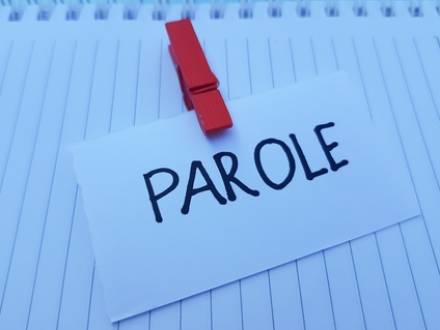Charged with a Federal Crime While on Probation or Parole?
 Being charged with a federal crime is serious in its own right, but if you are already on state or federal probation or parole, the consequences can multiply quickly. A new arrest can trigger a probation or parole violation that could send you back to jail even before your new charges are resolved.
Being charged with a federal crime is serious in its own right, but if you are already on state or federal probation or parole, the consequences can multiply quickly. A new arrest can trigger a probation or parole violation that could send you back to jail even before your new charges are resolved.
It is essential to understand how these overlapping legal issues are addressed in federal court, what the government must prove, and how an experienced criminal defense attorney can help you navigate the complexities. Now is not the time to try to handle your legal issues on your own; call a knowledgeable Plano, TX criminal defense attorney who is skilled in handling federal charges.
Why are New Federal Charges While on Probation or Parole so Serious?
A key condition of probation and parole is the requirement to obey the law and refrain from committing further offenses. Committing a new crime directly violates these terms. In many instances, committing a new criminal offense while on parole or probation can be serious enough to warrant revocation. Revocation means the person can be sent back to prison to serve all or part of his or her original sentence that was suspended through probation or parole.
In addition to facing serious consequences for violating the terms of parole or probation, the individual will also face the new federal charges. If convicted, additional prison time is likely. Committing a federal crime while on probation or parole is often considered an aggravating factor by the court when determining the sentence for the new offense.
Unfortunately, in probation or parole revocation hearings, the standard of proof is lower than in a criminal trial. The court must only find that it is more likely than not that the individual violated his or her parole or probation conditions, rather than proof beyond a reasonable doubt.
Can Federal Charges Affect State Probation or Parole?
New federal criminal charges often result in the revocation of state probation or parole. If the individual is convicted of the new federal charges, the judge will determine whether the sentence for the federal crime will run concurrently (at the same time) or consecutively (after completion) to the state sentence imposed for violating probation or parole.
Federal crimes generally take precedence over state crimes, especially when a person is currently released under state supervision and faces federal charges. While the state charges of parole or probation violation could result in the person being released on bond, this is less likely to occur when federal charges are pending.
How Are Probation or Parole Violations Proven?
If a Texas probation or parole officer has reason to believe that a person has violated the conditions of supervision, the officer will file a report with the court detailing the alleged violation after investigating the matter and gathering evidence. Evidence can include interviewing the person on parole or probation, as well as any witnesses, and reviewing drug test results or police reports.
A revocation hearing will be scheduled; in some cases, a preliminary hearing will be held to determine whether there is probable cause before moving to a formal hearing. The defense attorney can challenge the evidence presented and provide explanations for the alleged violation.
The judge will evaluate the evidence and determine whether a violation occurred. If a violation is proven, consequences can range from modified probation or parole terms to revocation and incarceration.
What Are Some Legal Strategies Used to Defend Probation or Parole Violations?
A defense attorney will do the following when violations of probation or parole are alleged:
- Fight the new federal charge to avoid violation
- Negotiate a plea deal that will limit the impact on parole or probation
- Make a persuasive argument for concurrent vs. consecutive sentencing
Contact a Collin County, TX Federal Crimes Lawyer
Having an experienced Plano, TX federal crimes attorney to guide you through this difficult time is extremely important. Attorney Crowder is super knowledgeable and aggressive and will fight for your future. To schedule your free consultation, call 214-544-0061.

















